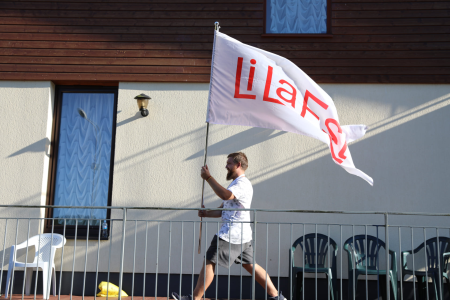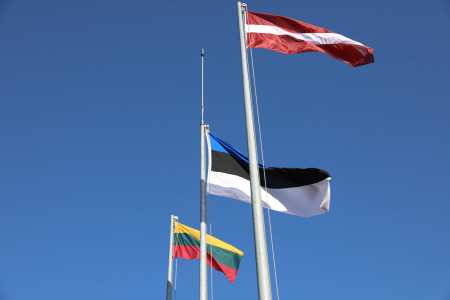
On August 17, a three-day conference of all three Baltic national libraries, “LiLaEst 2020,” took place in Lithuania. The theme of this year’s event was “Possibilities for Reusing Digitized Content.” Specialists from Lithuania, Latvia and Estonia had the opportunity to discuss the situation of each national library in the field, share good practices and visions for the future.
The main idea of the meeting, which takes place every two year in one of the countries, is that culture should not be locked up in repositories or archives and must be shared. Therefore, cultural institutions, libraries among them, also care about presenting cultural objects to the public. Advanced digital tools and the Internet have opened up vast opportunities for sharing cultural heritage. Reusing works have become especially popular now, when one can create new meanings by transferring a work to another context or adding unexpected elements to it. Representatives of the national libraries of Lithuania, Latvia and Estonia and experts gave presentations and shared their experiences, plans and problems of opening and reusing data stored at the libraries.
The participants were greeted by the director general of the National Library of Lithuania, Prof. Renaldas Gudauskas. He also presented Library’s results for the year of 2018–2019 and talked about the challenges and new opportunities in today’s COVID-19 world. Janne Andresoo, director general of the National Library of Estonia, sent her best wishes in a video greeting. Dagnija Baltiņa, who represented the National Library of Latvia at the event, also welcomed and shared the latest news with the colleagues from Lithuania and Estonia.

Juozas Markauskas from the Baltic Audiovisual Archives Council, talked about the digital resource management. Anda Baklāne from Latvia gave a presentation on digital humanities in Latvian libraries and presented the results of the project “Beyond the Search: Improving Digital Skills in Libraries and Scientific Communities.”
Jolanta Budriūnienė, director of the Documentary Heritage Research Department of the National Library of Lithuania, discussed the treatment of digital cultural heritage in building the Baltic Region Cooperation Network. She also talked about the achievements of the digitization process in the Baltics and how to strengthen and expand cooperation among various cultural heritage institutions.
In a video presentation entitled “The More We Give, the More We Get,” Henning Scholz, representing Europeana, presented Europeana’s strategy, quality guidelines for image and metadata (Publishing frameworks). Mahendra Mahey from the British Library spoke about the Library Labs in the British Library. The conference also offered participants various creative workshops, sessions and discussions.
In two years, LiLaEst will take place in Estonia.